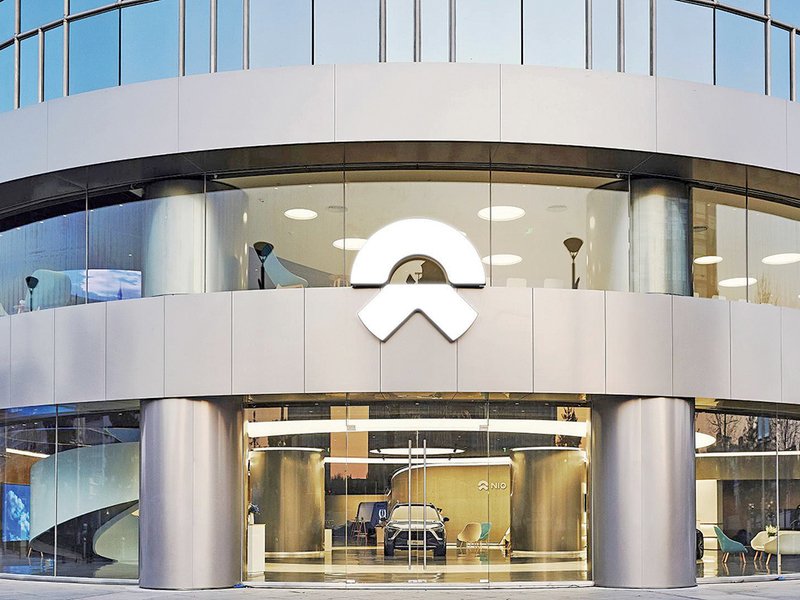
Nio Inc warned there is substantial doubt about its ability to continue as a going concern on Wednesday, prompting the cash-strapped electric vehicle maker’s shares to slump.
The EV startup, which is backed by Chinese internet giant Tencent and had been seen as a rival to Tesla Inc., has been hit by dwindling demand and reduced government subsidies in China, the world’s largest light-vehicle market.
Auto sales in China tumbled 42 percent in the first two months of the year compared to a year earlier, while sales of NEV, which include battery electric, plug-in hybrid and hydrogen fuel-cell vehicles, sank 60 percent.
Nio’s shares fell sharply on Wednesday, closing down 49 cents, or 17 percent, at $2.41 in New York trading, as Wall Street’s main indexes slumped in the wake of the spreading coronavirus epidemic.
The deadly viral outbreak has exacerbated Nio’s troubles, disrupting production and delivery of vehicles.
Nio delivered 2,305 vehicles in January and February, which was lower than its target, Nio Founder and CEO William Bin Li said.
The majority of cars delivered in the first quarter will be the ES6 crossover, which is more affordable than Nio’s ES8 crossover, Li added.
As the coronavirus hits its supply chain, Nio expects aggregate deliveries for the first quarter of 2020 to be around 3,400 to 3,600, and is still confident of achieving its sales target for 2020, Li said on an analyst call.
However, Nio’s cash balance of $151.7 million as of the end of December is not adequate to provide the required working capital and liquidity for continuous operation in the next 12 months, the company said in a statement.
The company’s current liquidity does not include, however, framework agreements with Hefei city government to raise more than 10 billion yuan and set up new manufacturing facilities.
“The parties are working on the legally binding definitive documents to be signed,” Li said. The agreement is set to be finalized by the end of April.
The company also said it had made several private placements of convertible notes in February and March for an aggregate principal amount of $435 million to support its operations and business development.